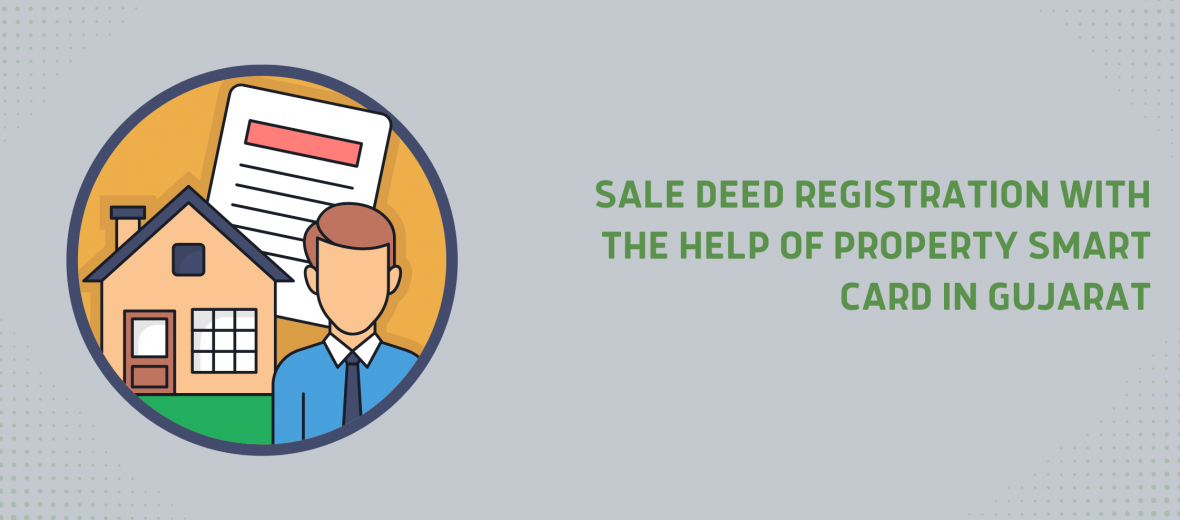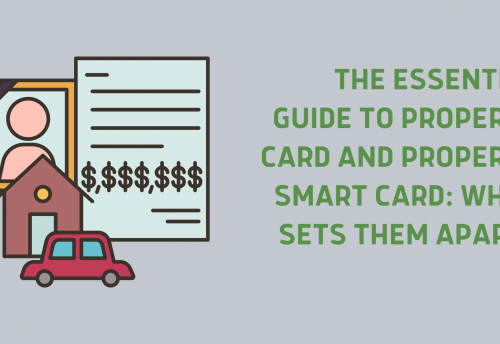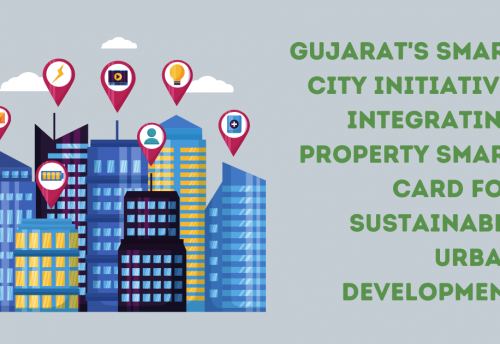
As a resident of Gujarat, I have personally witnessed the challenges of registering a property sale deed. The traditional process of sale deed registration can be tedious and time-consuming, resulting in delays and additional costs. However, the procedure has been significantly more streamlined and effective since the introduction of the Property Smart Card.
In this article, I will go over the traditional process of sale deed registration in Gujarat, its limitations, the benefits of a Property Smart Card, the process of sale deed registration with a Property Smart Card, documents required for sale deed registration with a property smart card, the difference between traditional and Property Smart Card process, the future of sale deed registration with Property Smart Card, and conclude with my recommendations.
Introduction to Sale Deed Registration in Gujarat
The process of transferring ownership of a property from the seller to the buyer is known as sale deed registration. In Gujarat, this process is governed by the Registration Act, of 1908. The registration of the sale deed is mandatory and provides legal validity to the transaction. Stamp duty, registration fees, and the submission of relevant documents to the sub-registrar’s office are all required as part of the registration procedure.
Traditional Process of Sale Deed Registration
There are several steps in Gujarat’s traditional sale deed registration process. First, a sale agreement that specifies the terms and conditions of the sale must be signed by the buyer and seller. After the contract is signed, the purchaser is responsible for paying the sale deed’s stamp duty, which is based on the property’s value. After that, the buyer has to submit the sale deed and all other necessary paperwork to the sub-registrar’s office. The selling deed is registered by the sub-registrar when the documents are verified.
Limitations of Traditional Process
The traditional process of sale deed registration in Gujarat has several limitations. The process is time-consuming, with multiple visits necessary to the sub-registrar’s office. Due to the high volume of transactions and manual processes required, the process is also prone to delays. The submission of fraudulent documents makes the traditional method more susceptible to fraud.
Benefits of Property Smart Card
The Property Smart Card© is a digital card that includes all the information about the property, such as ownership information, property tax information, and other relevant details. Compared to the traditional sale deed registration procedure, the Property Smart Card has several advantages. The Property Smart Card eliminates the need for physical documents and lowers the risk of fraud. The registration process is also streamlined by the Property Smart Card, which saves money and time.
Process of Sale Deed Registration with Property Smart Card
The process of sale deed registration with a Property Smart Card is much simpler than the traditional process. The buyer and seller must first obtain a Property Smart Card from the Corporation or a licensed and legalized company such as Aayaan Data Science Pvt. Ltd. The buyer and seller must sign a sale agreement after they get the card. The purchaser must then submit the sale deed and all other necessary paperwork to the sub-registrar’s office along with the online stamp duty payment. The selling deed is registered by the sub-registrar when the documents are verified.
Documents Required for Sale Deed Registration with Property Smart Card
The sale agreement, the Property Smart Card, proof of stamp duty payment, and other relevant documents like NOC from the society, if applicable, are needed to register a sale deed using a Property Smart Card. Property Smart Card is a form of digital documentation that can be used to confirm property ownership and transfer of ownership. This card provides information about the property, its location, size, and ownership details.
To register a sale deed, the following documents may also be needed in addition to the Property Smart Card:
Sale Deed: This is the main document that records the transfer of ownership of the property from the seller to the buyer.
PAN Card: PAN (Permanent Account Number) card is a mandatory requirement for all financial transactions in India, including property transactions.
Aadhaar Card: Aadhaar card is a unique identification card issued by the Government of India. It might be needed for identification during the selling deed registration process.
Proof of Address: Any document that serves as proof of address, such as a bank statement, etc. may be needed.
Non-Encumbrance Certificate (NOC): An NOC is a document that certifies that the property is free from any legal liabilities, such as pending litigation or loans. Usually, the seller’s bank or the local government can provide this document.
Property Tax Receipts: Property tax receipts are necessary to prove that the property taxes have been paid up to date.
Proof of Payment of Stamp Duty: A document that proves the payment of stamp duty is required for sale deed registration. The bank or the authorized organization where the stamp duty was paid will be able to provide you with these documents.
It is significant to note that depending on the state and legal requirements, different documents may be needed for sale deed registration. For more detailed information on the sale deed registration procedure, it is advisable to speak with a lawyer or a property registration specialist.
Difference between Traditional and Property Smart Card Processes
The primary difference between the traditional and Property Smart Card process is the use of physical documents versus digital documents. Physical documents must be submitted as part of the traditional process, which can be tedious and subject to fraud. On the other hand, the Property Smart Card method uses digital documents, which streamlines the procedure and lowers the risk of fraud.
Future of Sale Deed Registration with Property Smart Card
Although it is still a relatively new concept in Gujarat, the sale deed registration process could be completely transformed by the Property Smart Card. The use of digital documents and streamlined processes can reduce the time and cost involved in registering a sale deed. As the use of Property Smart Card becomes more widespread, we can expect to see further improvements in the sale deed registration process.
Conclusion
In conclusion, the sale deed registration process in Gujarat has traditionally been tedious and time-consuming. However, the procedure has been significantly more streamlined and effective since the introduction of the Property Smart Card. The Property Smart Card streamlines the registration process and eliminates the need for physical documents and lowers the possibility of fraud. As a resident of Gujarat, I highly recommend using the Property Smart Card for sale deed registration.
The registration of sale deeds is incredibly simple and time-saving with a Property Smart Card. So, Aayaan Data Science Pvt. Ltd is here to help you if you want a quick process for registering a sale deed. For further information, visit our website at www.aayaan.org or call us at +91 9426593253.




Leave a Reply